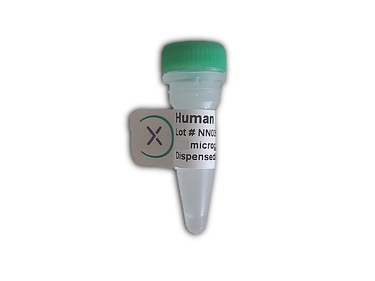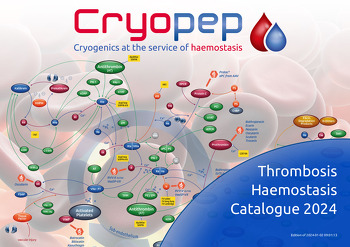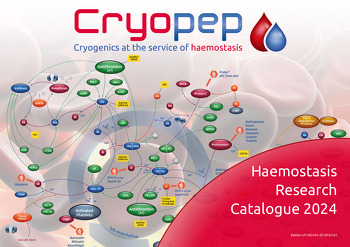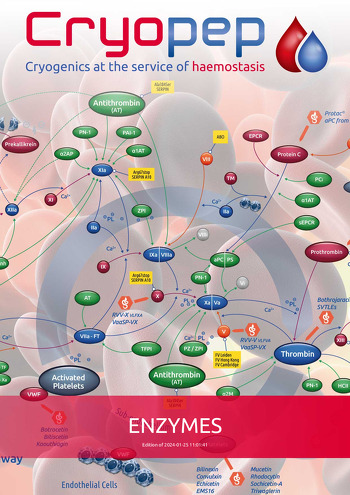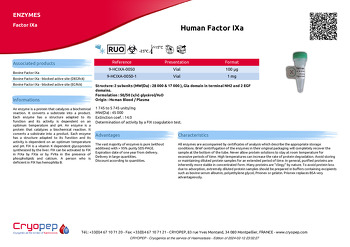An enzyme is a protein that catalyzes a biochemical reaction. It converts a substrate into a product. Each enzyme has a structure adapted to its function and its activity is dependent on an optimum temperature and pH. An enzyme is a protein that catalyzes a biochemical reaction. It converts a substrate into a product. Each enzyme has a structure adapted to its function and its activity is dependent on an optimum temperature and pH. FIX is a vitamin K dependent glycoprotein synthesized by the liver. FIX can be activated to FIX in FIXa by FXIa or by FVIIa in the presence of phospholipids and calcium. A person who is deficient in FIX has hemophilia B.
All enzymes are accompanied by certificates of analysis which describe the appropriate storage conditions. Brief centrifugation of the enzymes in their original packaging will completely recover the sample at the bottom of the tube. Never allow protein solutions to stay at room temperature for excessive periods of time. High temperatures can increase the rate of protein degradation. Avoid storing or maintaining diluted protein samples for an extended period of time. In general, purified proteins are inherently more stable in concentrated form. Many proteins are "clingy" by nature. To avoid protein loss due to adsorption, extremely diluted protein samples should be prepared in buffers containing excipients such as bovine serum albumin, polyethylene glycol, Prionex or gelatin. Prionex replaces BSA very advantageously.
The vast majority of enzymes is pure (without additives) with > 95% purity SDS-PAGE.
Expiration date of one year from delivery.
Delivery in large quantities.
Discount according to quantities.






